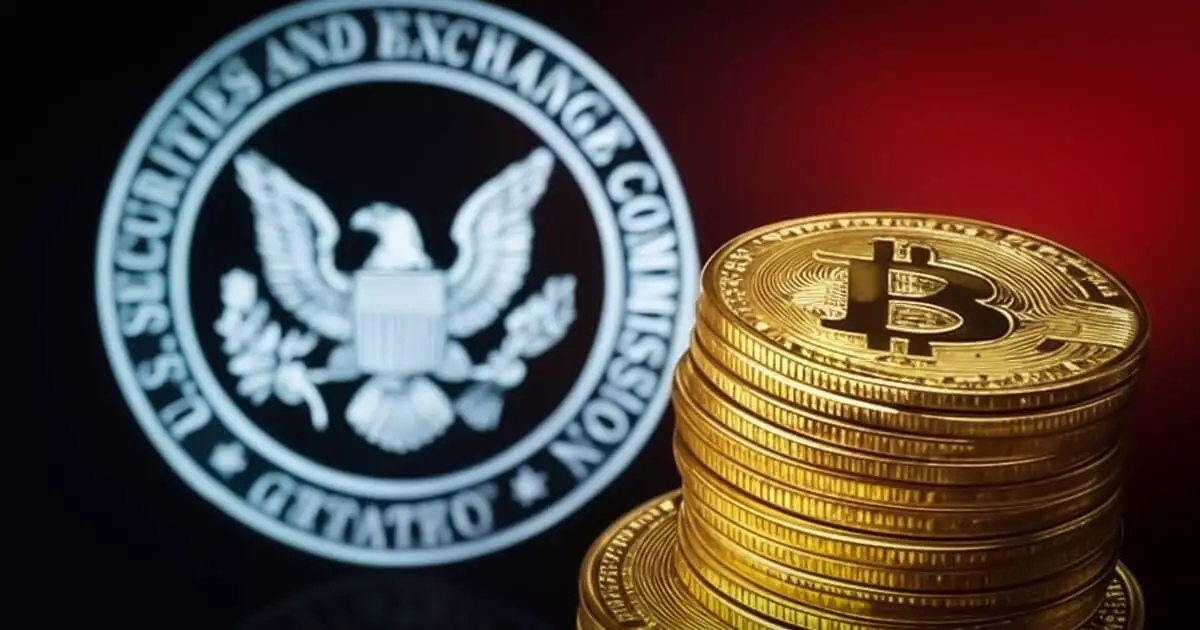As Donald Trump transitions into his presidency, significant tremors are felt within regulatory bodies tasked with overseeing the ever-evolving cryptocurrency landscape. According to reports from Reuters, adjustments at the U.S. Securities and Exchange Commission (SEC) could potentially alter the enforcement landscape for cryptocurrency firms. The imminent changes appear to be guided by the input of SEC commissioners Hester Peirce and Mark Uyeda, both known for their favorable perspectives on crypto assets. The likelihood of these changes heralds a broader reconsideration of what it means for cryptocurrencies to be categorized as securities and how the agency addresses ongoing legal disputes.
The Role of Key SEC Figures
The anticipated reformative steps stem from the influence of Peirce and Uyeda. These commissioners have gained reputations for advocating a clear and conducive framework for the growth of the crypto industry. Their intentions, as reported, include a systematic review of current enforcement procedures against crypto entities, some of which involve high-profile companies like Coinbase and Kraken. With potential relaxation of enforcement actions, Peirce and Uyeda may aim to create a regulatory environment that nurtures innovation rather than stifling it.
Bill Hughes, a legal expert associated with Consensys, suggests that insider perspectives from the SEC align with Trump’s publicly expressed views regarding cryptocurrency. Hughes posits that the strategic release of such information—though it risks being labeled as speculation—serves to exert pressure on the SEC’s leadership and facilitate momentum for reform. This notion raises questions about the transparency of regulatory processes and the motivations driving information dissemination within the SEC.
As former SEC Commissioner Paul Atkins prepares for his Senate confirmation to lead the SEC, industry eyes sharpen on his leadership’s potential impact. Known as an advocate for less stringent regulations, Atkins’ appointment signals a seed change for crypto policy considerations within the commission. His history as co-chairman of the Digital Chamber’s Token Alliance since 2017 reinforces his commitment to understanding and facilitating the growth of the digital asset ecosystem.
Further complicating the situation are the crippling compliance costs that have historically discouraged firms from holding cryptocurrencies on behalf of clients. Incoming changes might include the rescinding of unsolicited accounting guidelines that critics argue have been excessively prohibitive, creating openings for companies to operate more freely in the crypto space.
Enforcement Actions: A Double-Edged Sword
However, the SEC’s potential pivot from a stringent enforcement approach raises pertinent questions about the integrity and impartiality of the regulatory framework. Although re-evaluating litigation could lead to favorable outcomes for some firms, such as settlements or case withdrawals, this shift could inadvertently politicize the regulatory landscape. Critics express concern that easing enforcement actions may establish a troubling precedent, potentially undermining the SEC’s perceived objectivity.
Legal experts warn that the complexities surrounding the definition of securities in the context of cryptocurrencies create a fragile legal battleground. Philip Moustakis, a former SEC attorney, notes that a significant halt in enforcement measures could have enduring repercussions on the agency’s credibility. The legitimacy of any legal framework hinges on its robustness and consistency, qualities that could be tested if the SEC opts for a lenient stance.
Furthermore, Robert Cohen, a former SEC enforcement division attorney, emphasizes the possibility of reopening settlement discussions in ongoing cases. This may indicate a shift towards more collaborative engagements between regulators and crypto firms, moving away from an adversarial model. Yet, skepticism remains rife as crypto enterprises contend with the notion that the previous SEC administration operated with an unwillingness to negotiate.
As the cryptocurrency landscape continues to mature, the SEC’s response will be pivotal in shaping market dynamics, investor confidence, and the long-term sustainability of digital assets within the broader financial ecosystem. The coming months may usher in not just changes in regulatory posture, but also a broader cultural shift in how digital currencies are integrated into traditional financial markets. With regulators and industry players increasingly intertwined, striking a balance that fosters innovation while safeguarding investor interests will remain a formidable challenge ahead.



















Leave a Reply